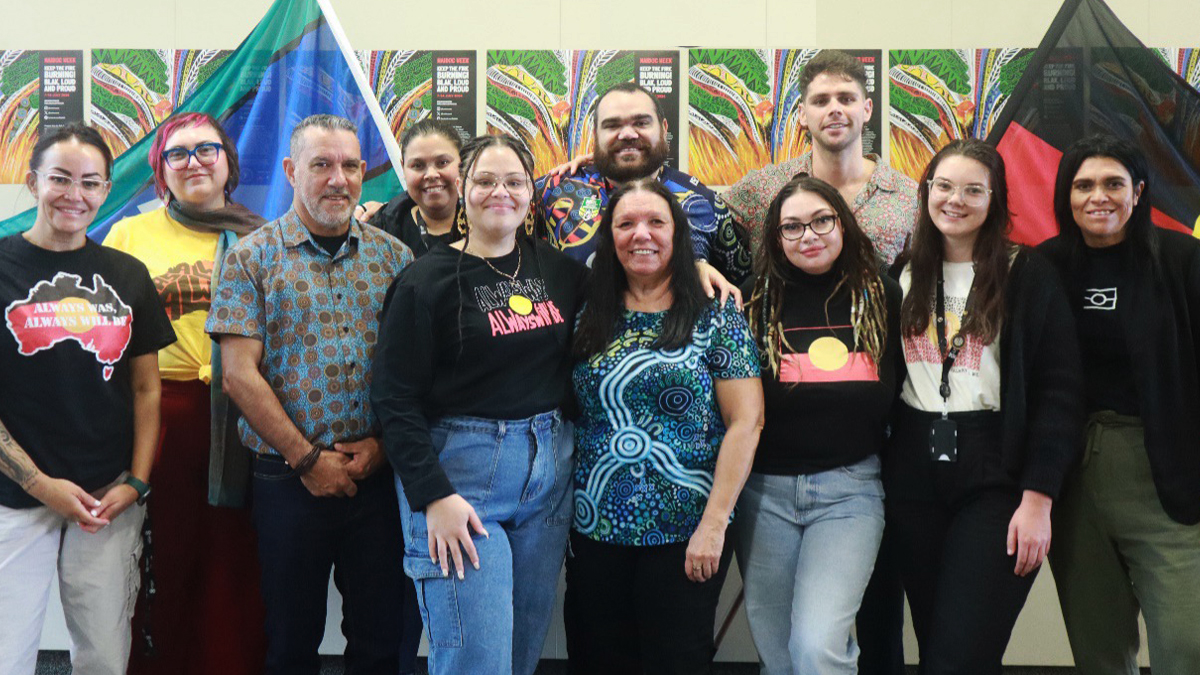
Highlights and achievements from the Aboriginal and Torres Strait Islander Health Program.
Unfortunately, many infectious diseases impact Aboriginal and Torres Strait Islander peoples at higher rates than non-Indigenous Australians, particularly in rural and remote communities, which face particular barriers to health access.
That’s why the Aboriginal and Torres Strait Islander Health Research Program at the Kirby Institute was created. Through close collaboration with Aboriginal Community Controlled Health Services and community leaders, staff and researchers at the Kirby are continually working on solutions for key health issues, including sexual health and blood-borne viruses.
Key successes at UNSW’s Kirby Institute
Since the appointment of Robert Monaghan as manager of the program three years ago, the program has enjoyed many successes. Here are a few highlights:
- A growing workforce. Over the past five years, the Kirby Institute has seen substantial growth in its Aboriginal and Torres Strait Islander workforce, from one to 12. Aboriginal health research works best when it’s led by Aboriginal health leaders, and we hope to see this number continue to increase.
- Ensuring the Kirby Institute is a culturally safe place to work. To date, the Kirby Institute has hosted 10 Cultural Awareness and three Ethical Research Training sessions for more than 190 staff.
- A visit to the UN. In June 2024, Project Manager Emily Phillips was invited as a panellist representing Indigenous people at the Multi-stakeholder Hearing on Antimicrobial Resistance (AMR), held at the United Nations (UN) Headquarters in New York.
- Ongoing research achievements. The Kirby’s First Nations staff, working in partnership with non-Indigenous researchers, have made a number of impressive research achievements over the past few years. These include the First Nations Molecular Point Of Care (POC) Program, which has introduced on-the-spot testing and diagnosis for STIs and respiratory infections among rural and remote Australian communities. With many remote communities located hundreds of kilometres away from laboratory testing facilities, there are often major inequities in healthcare accesses, leading to disproportionate infection rates among Aboriginal communities. Timely treatment not only has individual health benefits, but can also positively impact public health due to reduced onward transmission.
- Community impact. The Kirby recently partnered with Durex, Durri Aboriginal Corporation Medical Service and Walkabout Barber as part of a pilot program to help improve sexual health awareness among young Aboriginal men. The result? A purpose-built barber shop on wheels, which was a pilot program providing young men in the area with a free haircut, as well as a safe space for them to talk and learn about mental and sexual health.
- Medicare rebates now available. Evidence generated through Kirby Institute research recently led to the first Medicare rebate for an infectious disease point-of-care test.
Keeping up the good work
In other news, Dr Heather McCormack, a Wiradjuri woman and a Scientia Research Fellow, was recently awarded her PhD, making her the Kirby Institute’s first female First Nations PhD graduate.
Staff and researchers at the Kirby Institute continue to work in partnership with local communities to uncover solutions to some of the most complex health challenges. Head to the Kirby Institute website to keep up to date with the latest news and successes.
Pictured above: Some of the UNSW Kirby Institute’s First Nations staff at a NAIDOC celebration: (back row, l-r) Heather McCormack, Stacey Foster-Rampant, Glen Duncan, Hayden Crowley and (front row, l-r) Emma Pagett, Robert Monaghan, Kyana Kayago, Aunty Lola (Gujaga Foundation), Ashton Williams, Emily Phillips and Mel Fernando.
- Log in to post comments
